If you enjoy my posts, please consider signing up below to get email notifications of my latest posts. I will not share your email.
My life is wonderfully full. I have two young boys active in swimming, soccer, baseball, and cub scouts. We have been a host family for six exchange students who have over the years been involved in diving, synchronized swimming, speech, band concerts, downhill skiing – you name it, one of them has tried it. When I’m not driving kids around, my day job is an engineering manager at a medical device company, and I also lead the worship band at my church and play the piano. If there’s any free time left over in my evenings, I blog. But as busy as I am, there’s always room for a little bit more.
Gardening has always been a big part of my life and I hope I’ve taught my boys to love it too throughout the years.
I have 570 seedlings currently growing downstairs that will go into my gardens once it warms up (if that will ever happen this year). I water them and talk to them and try to remember to turn their lights on and off each day. On warm days, I carry 570 plants outside to spend a day in the sun, and then I cart them all back in the house in the evening to keep them from getting too cold. I do this for a few weeks before planting them. Before they even go into my garden, I have a rather one-sided relationship with each of these seedlings.
Pileated Woodpecker on our suet feeder
There are also six birdfeeders of various types around our yard. We have sunflower seeds, thistle seeds, suit feeders, hummingbird feeders, grape jelly inside of a hollowed-out orange for the oriels, and your traditional birdseed with peanuts for the cardinals. My husband and I keep these feeders full and fresh throughout the year based on migratory patterns of the various birds we hope will come visit our yard. We also have three bird boxes hanging up facing eastward, hoping to entice a bluebird to spend the summer with us. We keep a bat box up as well. At the end of our dock, through no action of my own, I am also lucky enough to have a muskrat den.
This muskrat and I have an interesting history. One night after work as the lake was melting I brought a glass of wine down to the dock to enjoy a warmer evening. I peered under the dock to see how much ice was left and the muskrat was under the dock. I scared him, he made a large splash as he dove back into the water which scared me and I spilled wine all over myself. Throughout the spring and summer I saw him more and more frequently. Eventually he would completely ignore me as I sat on the end of the dock with my feet in the water and would swim with a few feet of me on his way back home.
I was planting flowers out under a tree last night and as I stepped away to get water, a catbird flew down and I presume was looking for worms. I start talking to him as I’m walking closer, so I wouldn’t startle him, and my husband calls out “who are you talking to?” I can’t be the only one that talks to the creatures in my yard…
I plant butterfly weed each year to increase the potential habitat for Monarch caterpillars in our yard.
The questions that started forming in my mind a few weeks ago at the end of the day when I’m exhausted from work and running the boys around to different games and I saw that my seedlings needed water and the bird feeders were empty and all I really wanted to do was to curl up in bed – Why do I care so much about the critters in my yard? Why do I spend so much time taking care of seedlings when I could just go to the nursery and by more established plants? Why do I need to feel connected to nature?
Daylily blooming in my garden
I think it’s that there is such amazing beauty in the things that I cannot control. In a world so scripted to appear as if everything is perfect and effortless and under control, which causes such unneeded stress. I love nature because it’s wild, and I’m not expected to be able to tame it. I can influence and I can encourage, but the beauty of a blooming flower or the delight of a visiting hummingbird is nothing more than an amazing gift, each time.
Sign, yes, my deck needs to be re-painted, but I’m hoping you’ll focus instead on the duck who has decided to stop by and visit. You never know who might stop by to say hi.
My family loves watching the birds on our deck. The funny huge and awkward piliated woodpeckers trying to cling to the bird feeder half its size while it eats suit. The sweet male cardinals courting the females by feeding them. The chickadees who all decide to eat at the feeder at the exact same time. The brilliantly orange oriel that I am so proud of attracting into my yard even if it’s just for a few days.
I do nothing to attract the Bald Eagles in our yard, but I love that we live on lake shore property in MN and have the pleasure of seeing these frequently. I have to be honest though that I am not a fan when they decide to take their dead mouse or fish and eat it over our boat cover….
I also see myself reflected through nature – the best and the worst. Birds need to eat every day and unlike me, they are not hoarders. They take just what they need as they need it. I like to plan, store, and save, for life post-working some 30+ years away. While society tells me that this makes me responsible, I look out at the birds on our feeders and appreciate their vulnerability. They eat until they are full and leave the rest for others. Imagine if humans could be a little more like birds – there would be plenty for everyone.
My front garden a few summers ago.
I like to spend time out in my gardens – trimming off old buds, laying down compost, and watering, trying to get each plant to bloom. And when the flowers do bloom, I see how beautiful life is in each one of these blossoms. I don’t judge one flower to be better than another. Some have prettier colors, some have bigger blossoms, some have amazing smells. I don’t search for flaws in the flowers, I just appreciate each flower for its own uniqueness. Imagine if humans looked at each other this way. If instead of judging each other and comparing ourselves to each other, we just saw the beauty of life.
A fall hike at Wild River State Park in MN.
Another favorite place of mine out in nature is amongst trees. I love to go hiking and I find peace in a forest filled with giant neighbors. One of the reasons trees are so special is that they value one another. I know – it’s hard to relate to a tree. They are constants in our lives because they live so much longer than us. Their timescale is very different than ours so it’s difficult to observe them and see changes. Trees know that their survival chances are greater based on the whole forest surviving. Trees help each other through their interconnected root systems. A taller tree with more access to the sun, will give extra sugar nutrients to a younger and shorter tree. They also send warning signals to one another when threats are detected so the whole forest can prepare a defense against an invader such as a harmful insect. Humans care and help each other too, but we do it more out of compassion for each other than because we believe there is value in another’s survival. We focus on our own needs first and compete for resources. This is ever so apparent the more we walk around with our faces focused on our phones than on each other.
I am blessed to live out of the city and enjoy all types of wildlife that call our yard their home too.
What if society were more like nature? What if instead of trying to compete with other for who’s children are on the best sports team and who has the best job, expensive car, cleanest house, we saw what other people needed? What if we helped each other selflessly like the trees in the forest and when we looked at each other we saw the beauty of life instead of judging a difference? What if instead of creating excuses for why we deserve more than another person we took only what we needed? If we were more like nature, would we treat each other differently? Would we care for our planet differently? Would we share our resources more effectively if we thought about our survival through future generations? It would benefit us all to spend more time in wildness of nature, to feel more closely connected with it, and to see ourselves through nature’s lens.







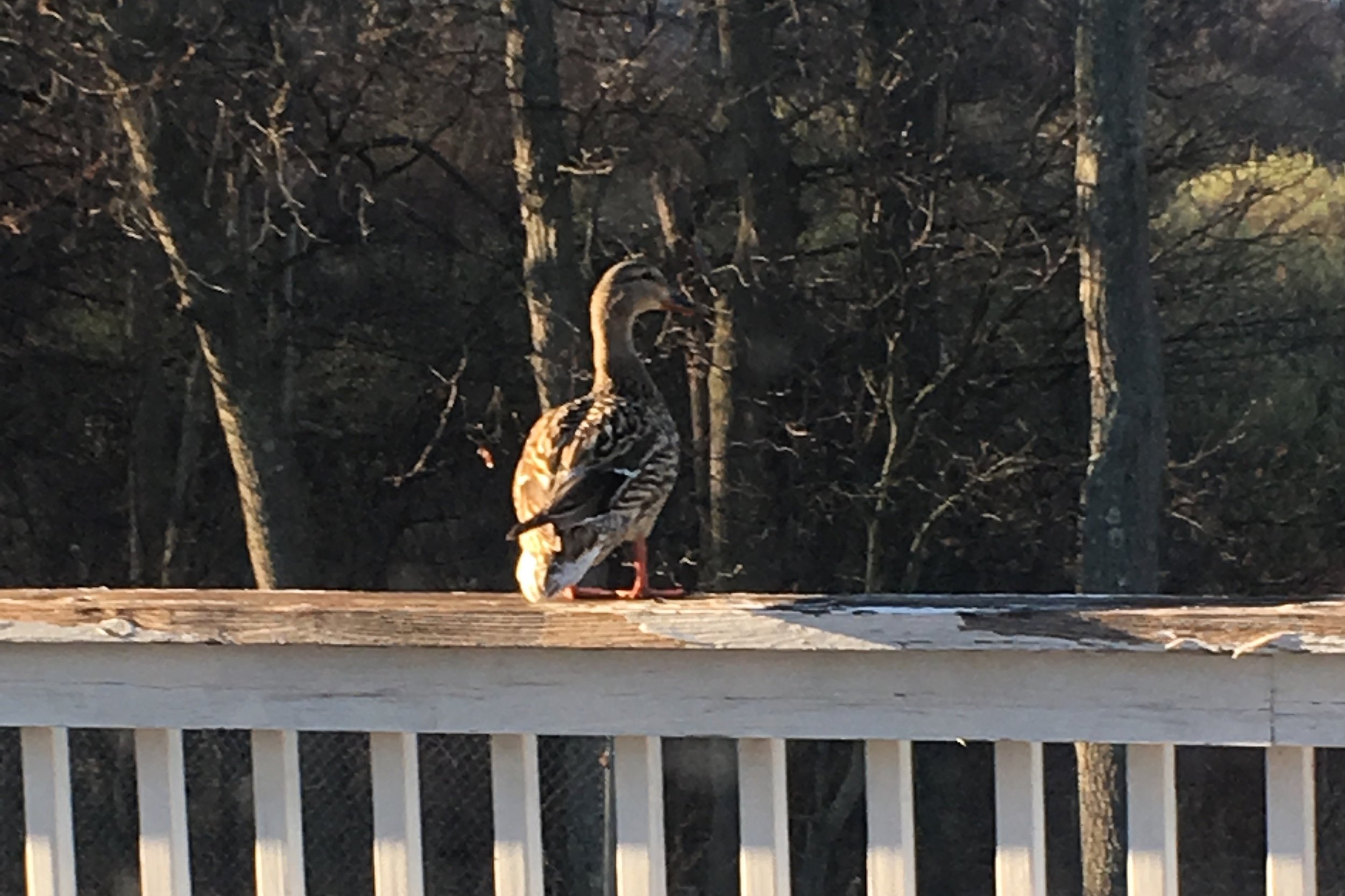




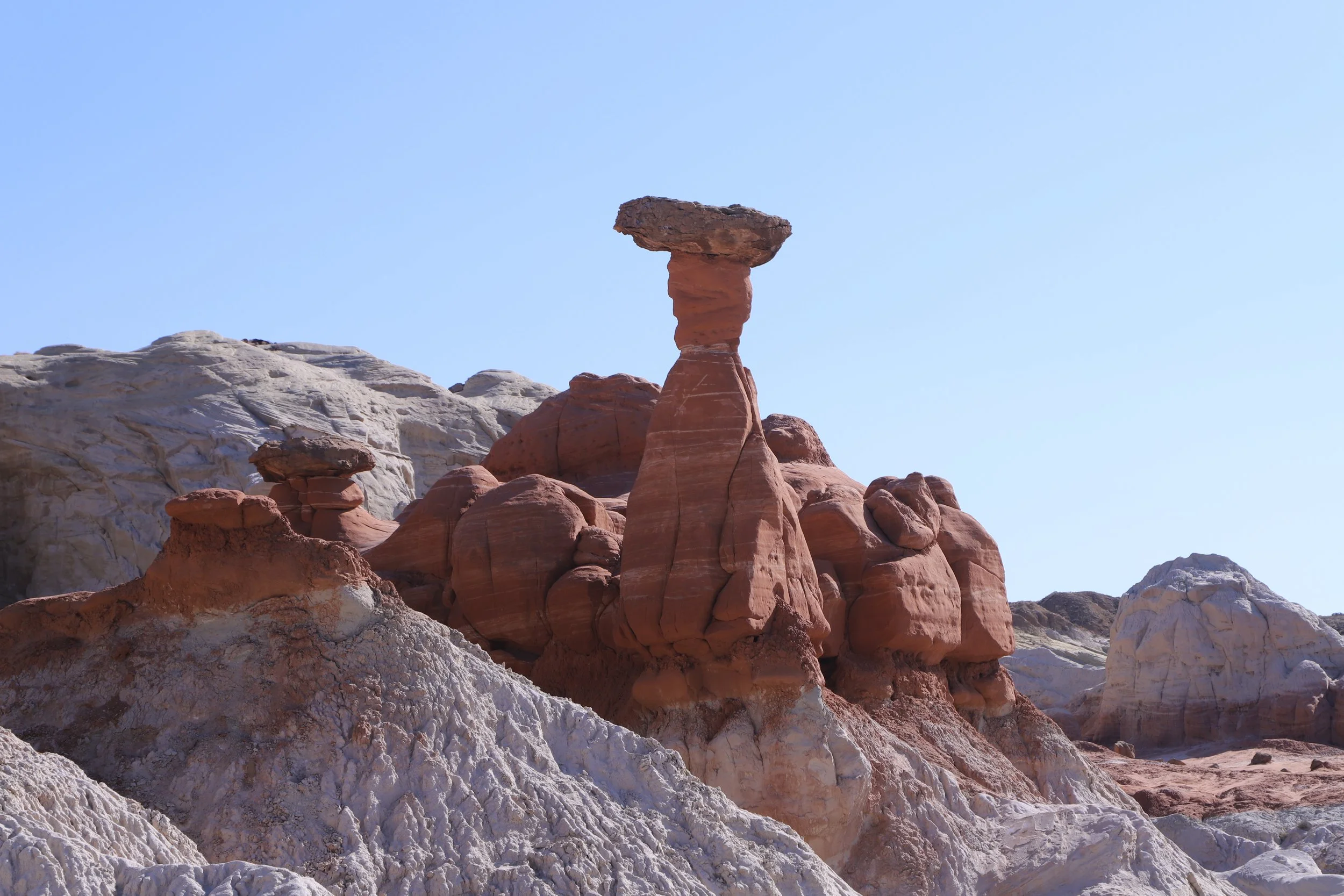
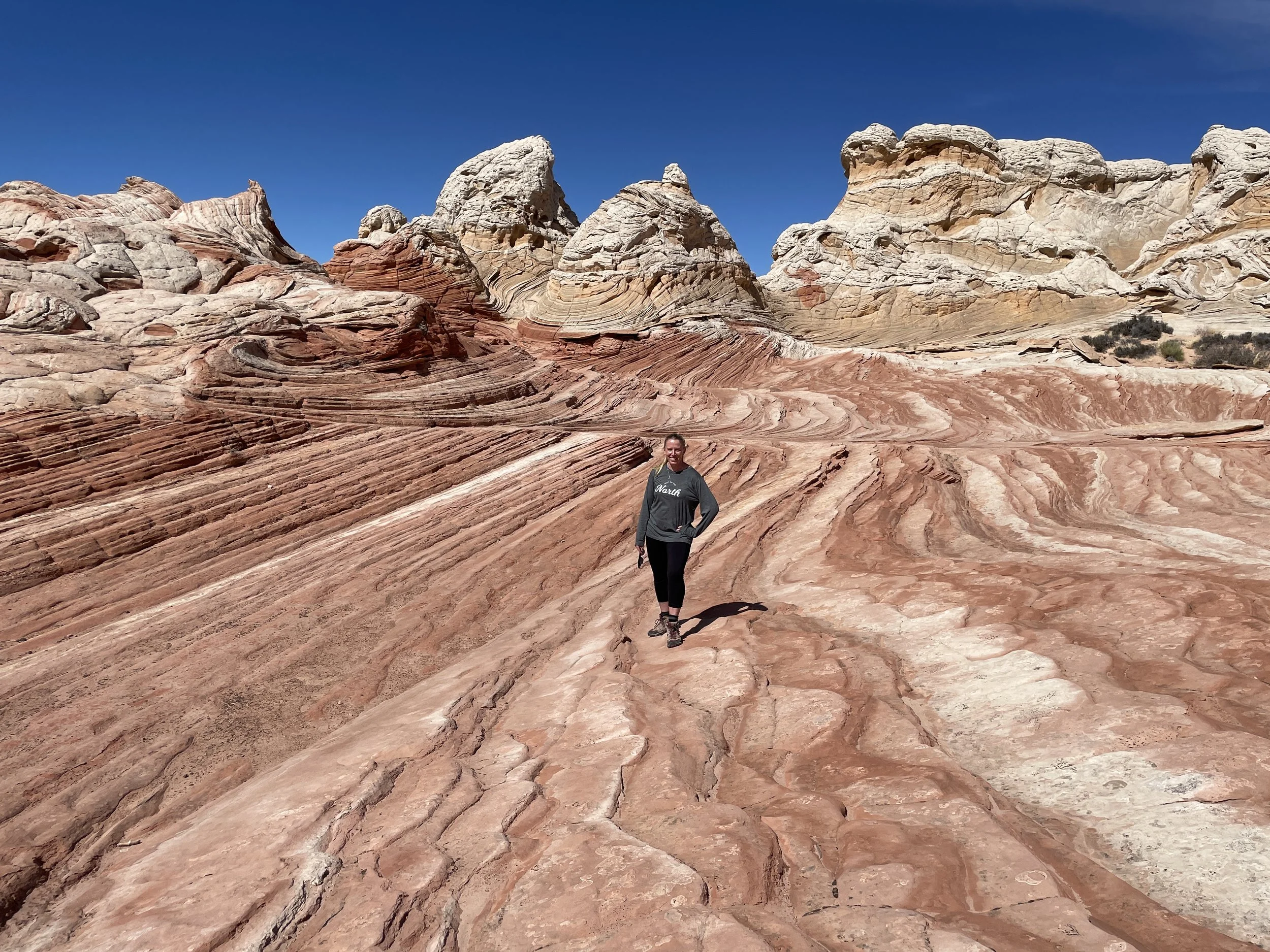
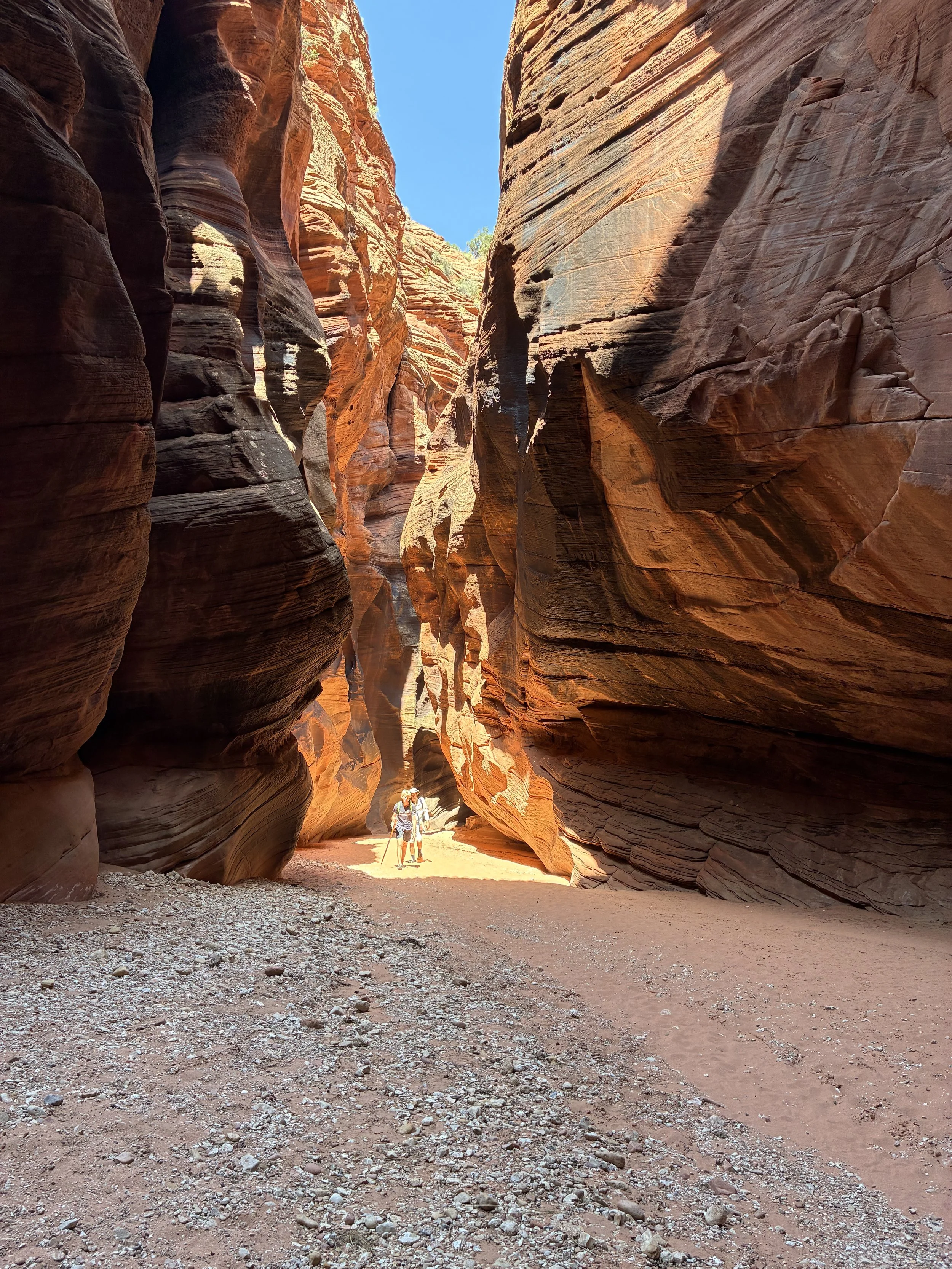
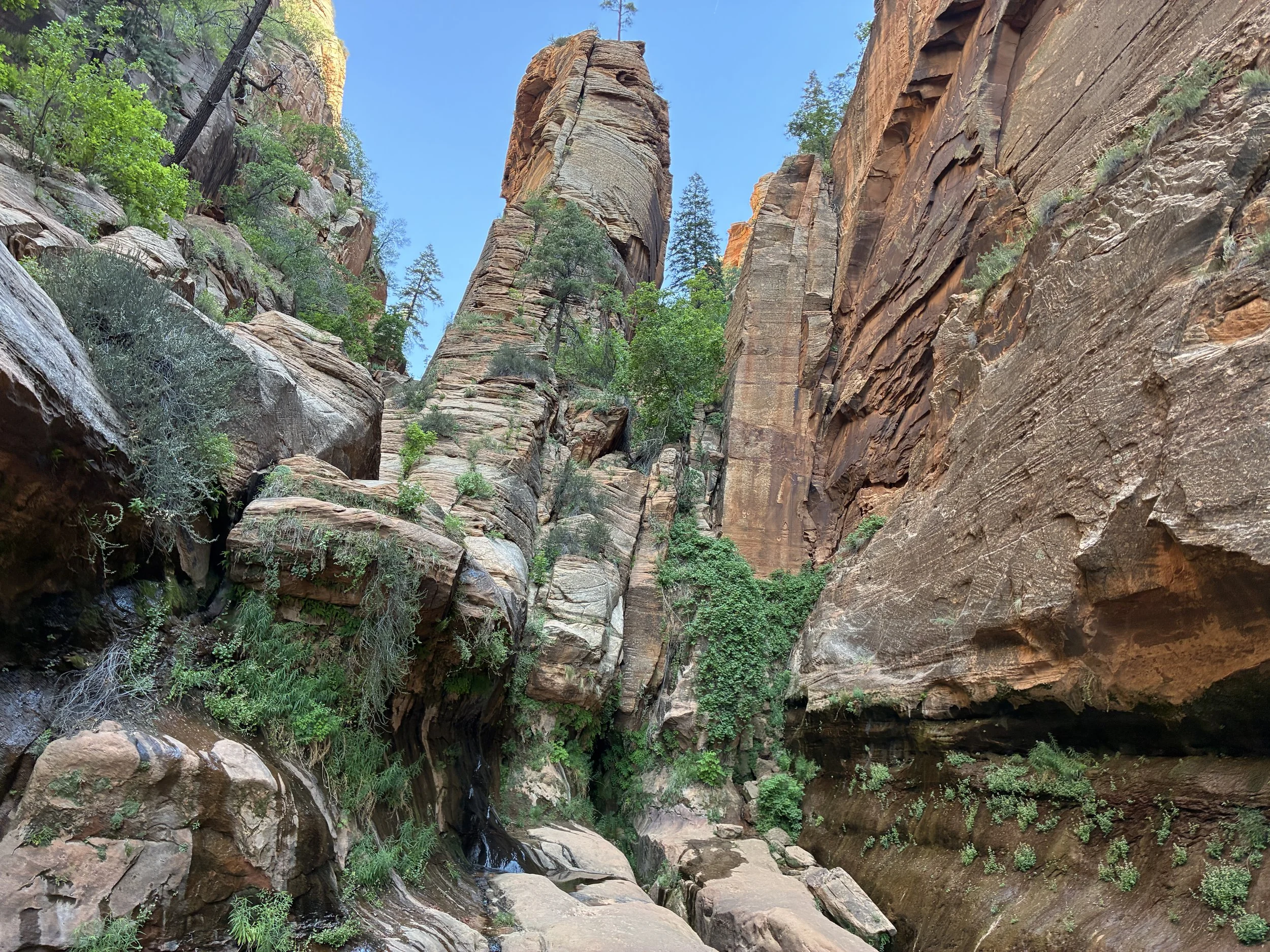

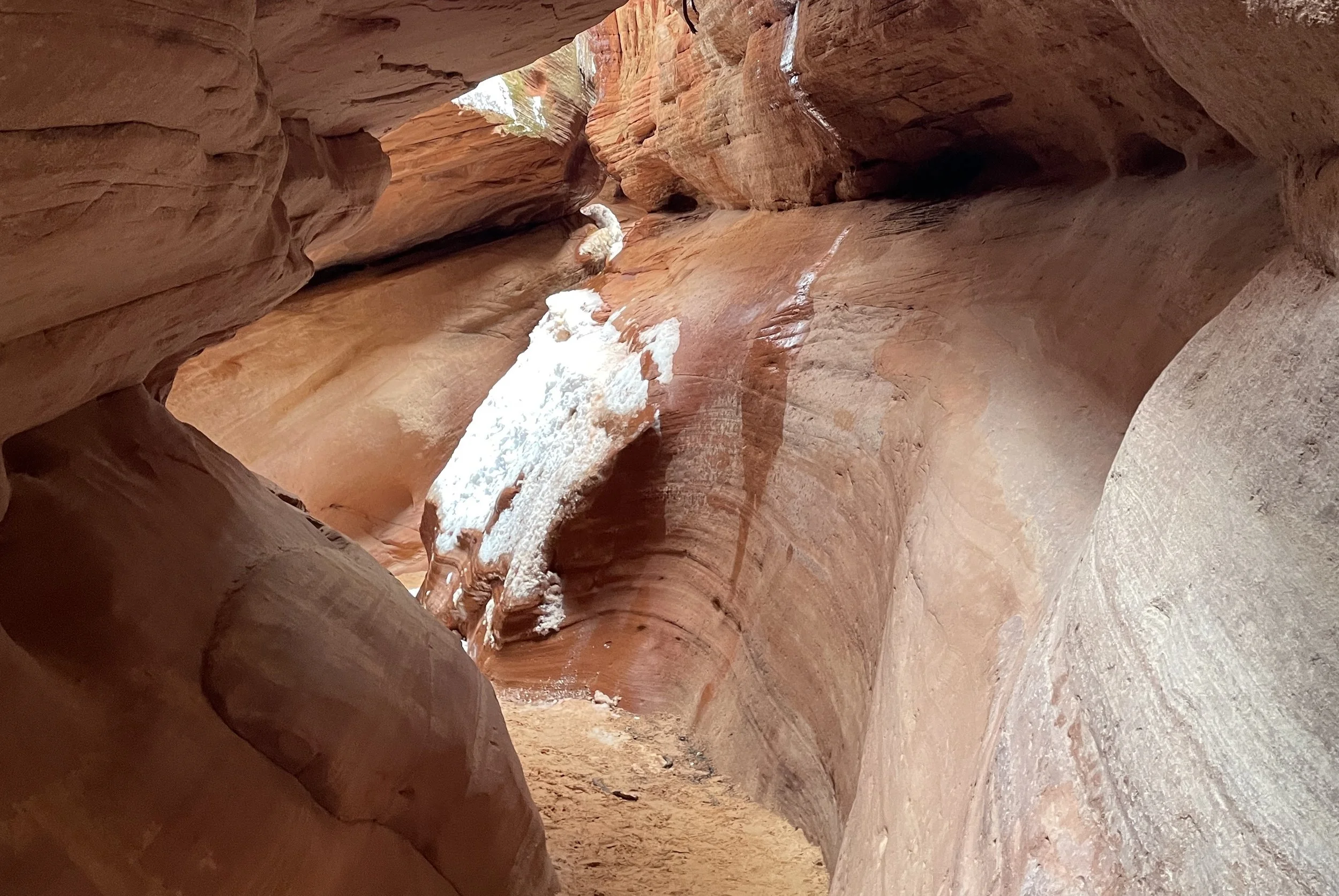



Antelope Canyon is an incredibly beautiful slot canyon in Page, Arizona. The canyon has intricately cut walls that will play with your imagination. There are three entry options - Lower Antelope Canyon, Upper Antelope Canyon, and Rattlesnake Canyon. All entries are on Navajo Tribal Land and therefore all three places require both admission to enter the park and a pre-purchased ticket for a tour at a specified time. Inside the canyon, the floor is sandy and flat. The walls are tight but don’t require squeezing. To get into the canyon, steps and ladders are required on some tours, and all tours involve at least a short walk through the desert (which is going to be hot in the sun in the summer). I have links to other slot canyon hikes at the end of this post (most of which are free or just cost the admission of the park).